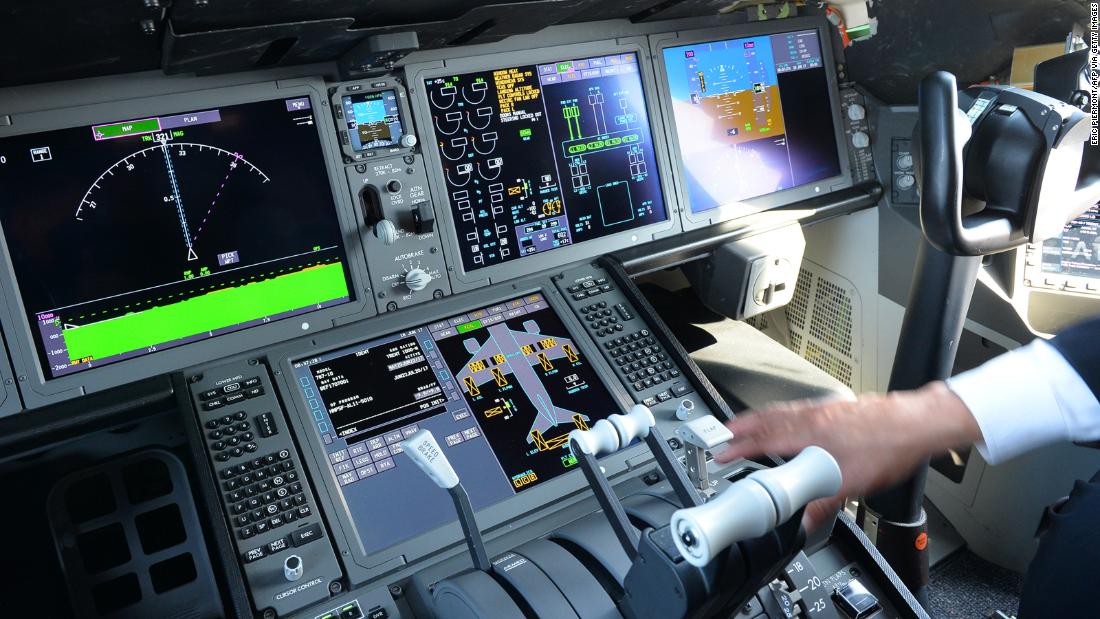(CNN) — It’s a nightmare scenario: the pilot of your flight is incapacitated and someone has to get in their seat and land the plane. Could you do it?
The incident is just the latest in a streak of similarly lucky “talk-down” landings, in which a passenger landed a plane safely with the assistance of someone from the ground or on other aircraft.
There’s a common trait in these events: they all involved Cessna aircraft.
These small planes are the top choice in flight schools, as they are sturdy and relatively intuitive to control, and as a result they have become popular with flight enthusiasts.
A chilling precedent
A passenger with no flying experience safely landed a private plane at a Florida airport with the help of an air traffic controller after the pilot became incapacitated. The condition of the pilot is unknown at this time. CNN’s Pete Muntean reports.
According to Douglas Moss, an FAA certified flight instructor and former United Airlines pilot, while it is very difficult to land a plane without experience, it’s definitely possible given certain conditions, as the events above demonstrate.
First, a motivated person who realizes that they’re in a life or death situation. Second, help from a flight instructor on the radio to talk them through every step. And finally, some natural talent for controlling a mechanical device.
“For example, being able to quickly adapt to and understand the relationships between the plane’s flight control devices, such as the rudder and throttle controls, and their aerodynamic responses,” Moss says. But if any of these conditions is absent, he adds, things could get ugly.
On larger planes such as airliners, however, even such an optimal scenario could fall short, according to Patrick Smith, an airline pilot flying Boeing 767 aircraft and the author of the popular book and blog “Ask the Pilot.”
Smith believes that a person with no flying experience taking over the controls of a commercial passenger plane at altitude would have no chance of a successful outcome.
“A non-pilot wouldn’t have the slightest idea how to even work the communications radios, let alone fly and land the jet,” he says.

Most successful unqualified emergency landings have involved Cessna light aircraft.
LINDSEY PARNABY/AFP via Getty Images
No passenger has ever landed an airliner, but that’s mostly because no one has ever had to try.
The flight attendant, Andreas Prodromou, had remained conscious by using a portable oxygen canister, but only gained access to the cockpit minutes before the engines flamed out.
A slightly more favorable scenario would be one in which the plane is already configured for landing and lined up with the runway, rather than at cruise altitude.
“The odds are still very much against you, but the results would vary person to person and airplane to airplane,” Smith says.
“Where, exactly, is the plane from the runway in terms of altitude, distance and speed? And how accurate are this person’s seat-of-the-pants interpretations of what the plane is doing? Much of it, too, would come down to luck.”
Does confidence help?

A full-spec flight simulator offers a useful test of whether you could land a plane.
YOSHIKAZU TSUNO/AFP via Getty Images
What about flight simulation programs, such as the popular Microsoft Flight Simulator? They could give you an edge, Smith says.
“A skilled-enough hobbyist could perhaps save the day. But even the most advanced hobby sims aren’t totally realistic. The devil is in the details — there are switches, sequences and systems quirks that you don’t really see in them, but could make a life-or-death difference in the scenarios we’re talking about.”
“Despite telling us they know that landing a plane requires a great deal of expertise, people who watched the video were 28.6% more confident in their ability to land a plane without dying, relative to people who didn’t watch it,” says Kayla Jordan, one of the authors of the study.
This is due to the fact that when novices learn just a small amount about a complex task, Jordan says, their confidence in their performance rapidly increases, a phenomenon known as the Dunning-Kruger effect.
In the study, this confidence bias appears to be worse in men than women.
“Regardless of whether they watched the video or not, we found that men were more confident in their ability to land the plane than women by about 12%,” says Jordan. “This finding is in line with existing work that has found men tend to be more overconfident in their knowledge and abilities than women, even in a high-stakes environment, such as competitive running or diving.”
There is a simple way of testing out this misplaced confidence, and accurately ascertain if a novice can indeed land an airliner, according to Patrick Smith: use a professional flight simulator, the kind airlines train their pilots with.
“Stick a person in a true, full-motion airline simulator at 35,000 feet, with no help, and watch what happens,” he says. “It won’t be pretty.”
Top image credit: ERIC PIERMONT/AFP via Getty Images
